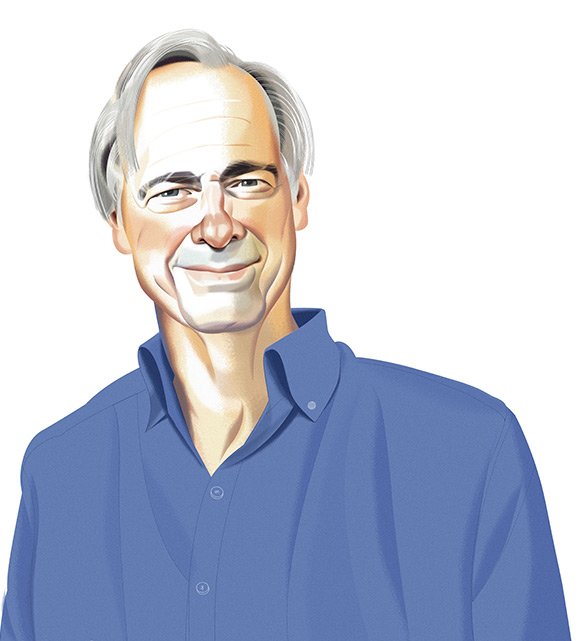 Ray Dalio, Bridgewater Associates (Art by Nigel Buchanan)“A recruiting process can only take you so far,” Bridgewater Associates Founder Ray Dalio told Milken Institute Global Conference attendees on Monday. “It’s like becoming a Navy SEAL,” he said of joining the firm. “Until you’re in that experience, people don’t know what it’s like.”
Ray Dalio, Bridgewater Associates (Art by Nigel Buchanan)“A recruiting process can only take you so far,” Bridgewater Associates Founder Ray Dalio told Milken Institute Global Conference attendees on Monday. “It’s like becoming a Navy SEAL,” he said of joining the firm. “Until you’re in that experience, people don’t know what it’s like.”
Bridgewater’s famed culture demands radical transparency (videotaped meetings, open performance reviews) to foster a “meritocracy of ideas,” Dalio explained. And determining ideas’ merits means subjecting them—and the human sources of them—to “radical truth” and critique.
For new employees, this cultural transition typically stings.
“Pain indicates that something is wrong, and I’ve found my best learnings came from painful experiences,” he continued. “But it’s only psychologically hard. Once you get that in your mind, there’s no reason for these experiences to be painful.” Nevertheless, he acknowledged, “some make it; some don’t.”
The firm’s remarkable longevity (40-plus years), assets ($150 billion), and performance (consistently strong) are the products of its equally unusual culture, Dalio argued. “It’s been operating this way for 40 years, and it’s the basis of our success. It’s not theoretical.” Nor should it be for society outside of Westport, Connecticut, he suggested.
Radical truth isn’t so radical, in Dalio’s view. “Would you like to know your weaknesses? Do you mind showing people what’s going on? How many think that basically this is logical?” Most hands went up in the crowded Beverly Hilton ballroom.
“I think the greatest tragedy of all time is that people keep wrong thoughts, wrong opinions in their minds,” he said. “This is the biggest problem with mankind. The biggest antidote is thoughtful disagreements.”
Harvard Professor Robert Kegan moderated the session, having spent a week embedded at Bridgewater while researching an upcoming book. “We scanned the country looking for organizations that might be living from what we’ve learned in adult development and neuroscience,” Kegan explained. Dalio’s hedge fund emerged as one of a small handful.
“At Bridgewater, I often had people say to me, ‘It’s a hard place to be and a hard place to leave’,” the researcher noted.
Dalio had no argument with that idea.
Related: The Final Word on Ray Dalio
